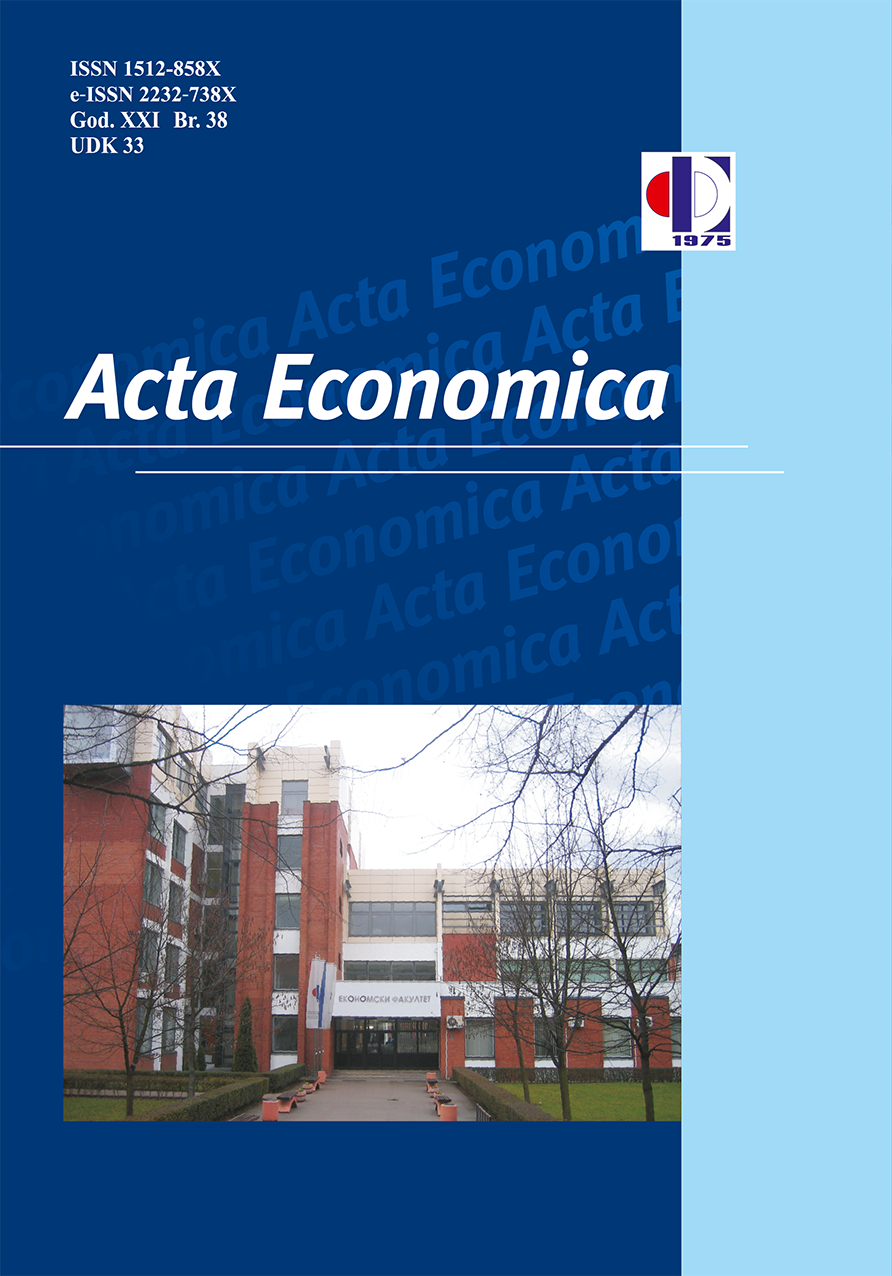THE IMPACT OF CURRENCY DEPRECIATION ON EXPORTS: AN AUTOREGRESSIVE DISTRIBUTED LAG APPROACH FOR TURKISH LIRA
DOI:
https://doi.org/10.7251/ACE2338093OAbstract
Turkey experienced many economic crises during the 90s and 2000s, and international trade activities changed drastically as the Turkish currency “Lira” fluctuated severely. The Turkish lira has depreciated rapidly against foreign currencies in recent years, affecting Turkey’s international trade activities. The research uses Autoregressive Distributed Lag (ARDL) bounds testing to investigate the effect of the Turkish Lira depreciation on Turkish exports from 1990 to 2020. The findings suggest that the exchange rate is related to exports in both short and long run. In contrast, the inflation rate has a negative and insignificant long run influence on exports, but a negative and significant short run effect. Furthermore, imports have a negative and insignificant impact in the long run, while exports have a positive and significant effect in the short run. In the long run, the deposit interest rate is positive but insignificant at 1 percent and 5 percent significance levels. These results suggest that Turkey should produce its intermediate goods in anticipation of the high exchange rate and export highvalue- added technology-intensive products to eliminate the dependency of Turkey’s exports on imports.

